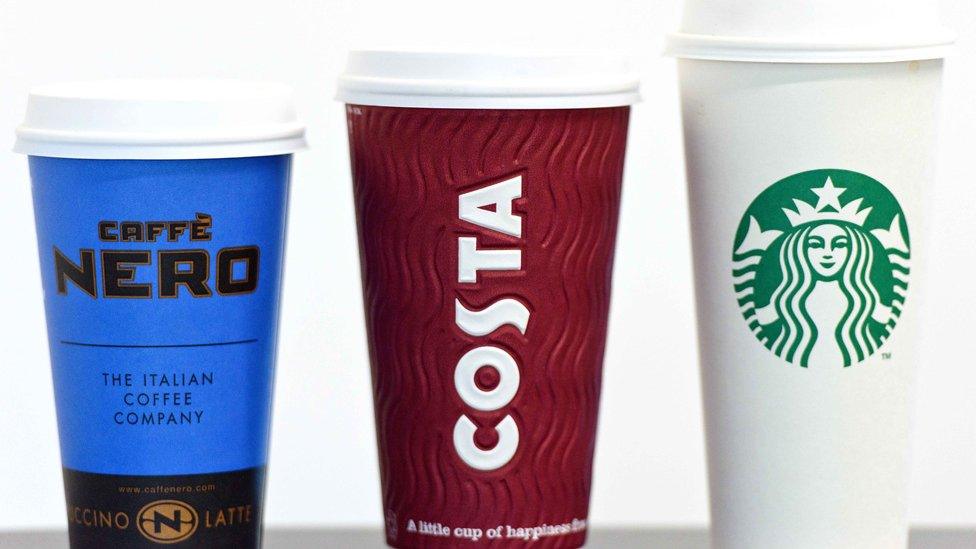Coffee cup ban: Boston Tea Party's sales fall by £250k
- Published
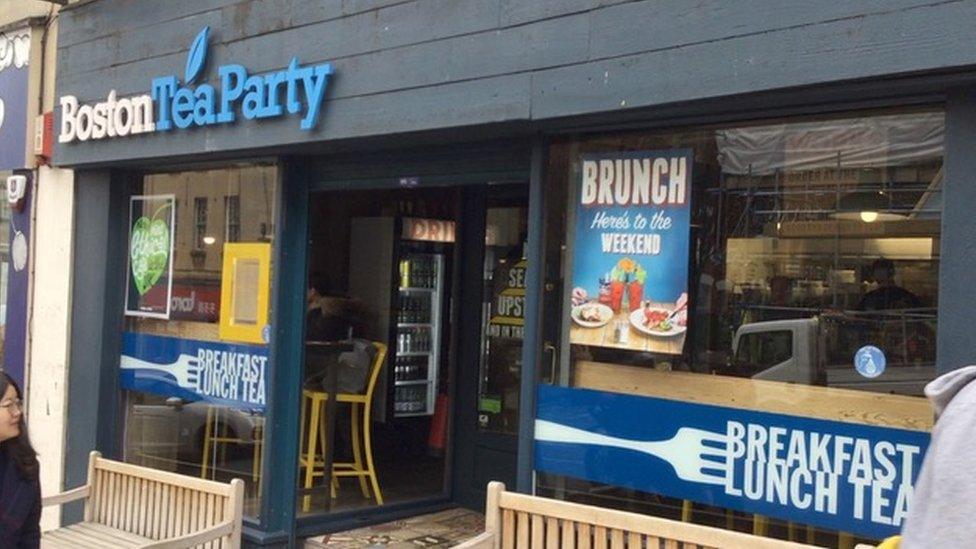
Boston Tea Party has 21 branches around England
An independent coffee chain said it has seen sales fall by £250,000 since it banned single use cups last summer.
Boston Tea Party (BTP) has called for major national and international brands to follow suit.
Owner Sam Roberts said it had factored the loss in takings into its plans and that too many operators were "putting their profits before the planet".
Rebecca Burgess, chief executive of plastic pollution campaign group City to Sea, praised BTP's "bravery".
The chain, which has 22 branches around England and is based in Bristol, started the ban in June 2018.
Sam Roberts explains the move to ban one-use cups despite it losing them money
Customers must bring a reusable cup, drink in or pay a deposit on a cup they can return to any branch.
How has it affected the business?
Boston Tea Party usually sells £1m in takeaway coffees per year but it is down 25%.
Mr Roberts says thankfully the business is supported by a strong food offer and most customers are supportive of its stance on single use cups.
But he agrees a smaller coffee shop would struggle to finance a ban.
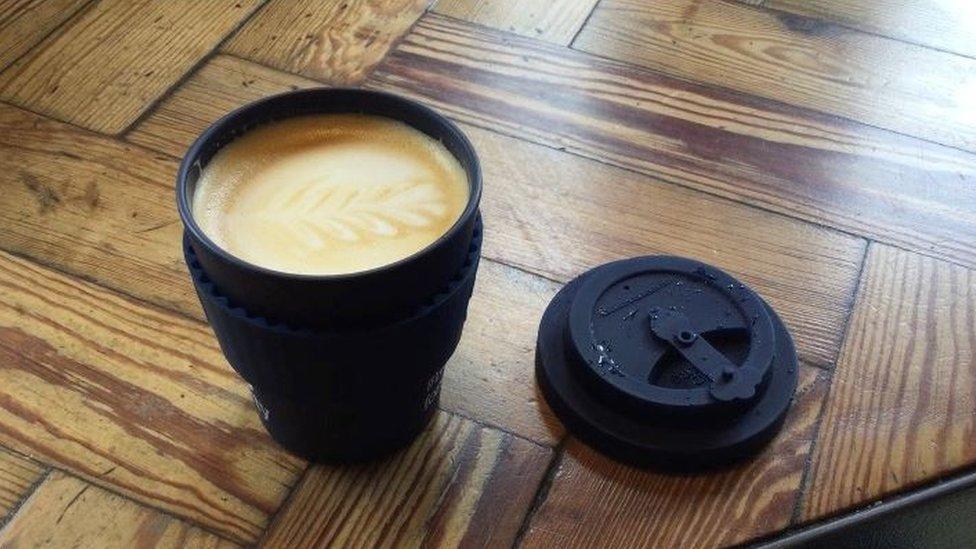
Boston Tea Party says it has stopped 125,000 cups going to landfill since last June when it brought in the ban
He said: "We have lost around 25% of our takeaway coffee sales but we modelled that into our costs as passing trade who don't want to get involved in the cup loan scheme.
"We felt this was a financial loss we had to take and we want this to be a call to action to other companies.
"Those using a 25p off a reusable cup scheme - we know first-hand this has a very low penetration and when we launched that scheme ourselves, only 5% of customers took it up.
"There's too many operators not dealing with the problem and putting their profits before the planet.
"At the moment bigger businesses are deploying a smoke and mirrors strategy and not resolving problems while seeming like they are doing something about it.
"We are 100% committed and there's no going back."
Mr Roberts said the firm had stopped 125,000 cups going to landfill, sold 40,000 reusable coffee cups and raised £12,000 for local charities with the money saved on buying disposable cups - roughly 10 pence for every cup.
What do the customers say?
Boston Tea Party says it has lost £250,000 in sales from the move.
But what about the other chains?
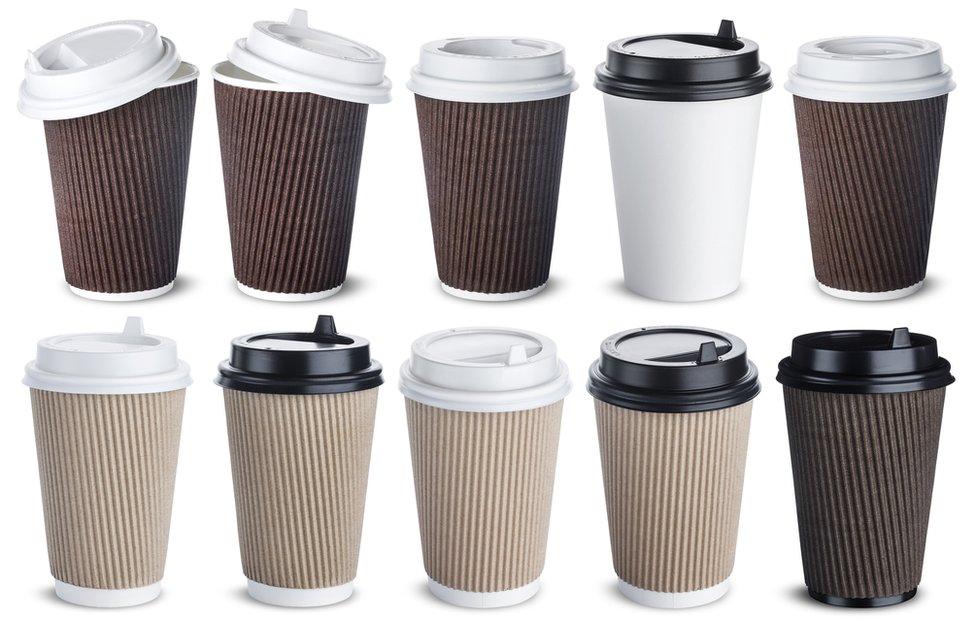
Costa Coffee has promised to recycle as many cups as it puts into the market by 2020 and also offers customers a 25p discount on hot beverages if they bring their own reusable cup.
Pret A Manger offers a 50p discount on hot beverages if people bring their own reusable cup. A spokesperson said: "We doubled our discount for customers who bring in their own reusable cup to 50p in January 2018 and, since then, usage has increased almost 20-fold. "We now serve over 150,000 drinks in reusable cups every week, and since the discount was doubled, Pret customers have saved over six million paper cups."
Starbucks offers customers a 25p discount on hot beverages if they bring their own reusable cup. Starbucks has announced its London cafes will trial a redesigned cup that will be both recyclable and compostable. A spokesman said: "Our British stores are the first globally to have trialled a 5p charge on takeaway cups." He said reusable cup uptake had risen from 1.8% to more than 5% in the past 18 months. Along with McDonald's it has invested £10m in firms hoping to design a sustainable alternative to the disposable cup.
Caffè Nero says that, along with its competitors, it is "working to increase the number of [coffee cup] recycling points" in the UK. It also encourages the use of reusable cups by offering 2 stamps per coffee on its loyalty card.
Caffè Nero, Starbucks, Greggs, McDonald's UK and Pret A Manger are also involved in a cup recycling scheme that funds the collection of takeaway cups for recycling.
You may also like:
Why are coffee cups a problem?
Very few disposable coffee cups get recycled.
The mixture of plastic and paper in the lining, which is designed to make them leakproof and retain the heat, causes difficulties.
In 2011, a survey by Which? suggested eight out of 10 people believed coffee cups were being recycled.
Mike Turner from the Paper Cup Alliance said paper cups were "100% recyclable" and there were five facilities in the UK that did so.
"What is needed is further collaboration between consumers, retailers, waste management companies and local councils to get more paper cups to the recycling plants," he said.
A Parliamentary report in 2017 said only 1 in 400 cups were being recycled but Mr Turner said this had risen to 1 in 25 and was increasing.
Many people think they are widely recycled
2.5 billioncoffee cups are thrown away every year
0.25%are recycled
500,000are littered every day
25,000tonnes of waste a year in landfill
8 in 10people asked by Which? in 2011 believed they were recycled
1 in 5people visit a coffee shop daily
What do environmentalists think?
A so-called "latte levy" was rejected in the autumn budget as ministers argued it was better for shops to offer voluntary discounts to customers bringing their own cups.
Rebecca Burgess from City to Sea said more chains should follow BTP's lead.
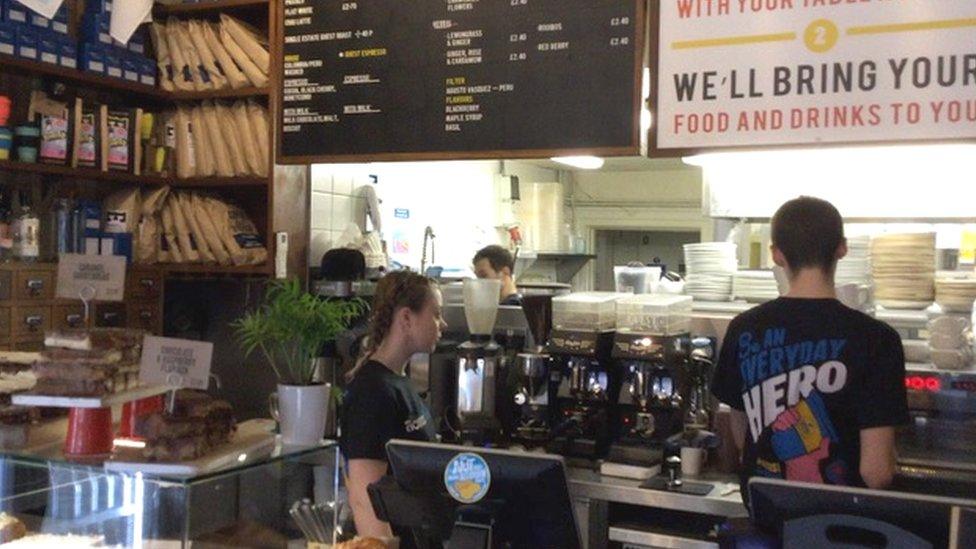
The firm said it wants its decision to be "a call to action" to other companies
"The evidence is clear that levies are effective in changing throw-away behaviour," she said.
"While we celebrate any steps taken by retailers to reduce their use of single use plastics, the discounts currently offered by chains for bringing in their own reusable coffee cup aren't enough to address this growing issue."
- Published24 April 2018
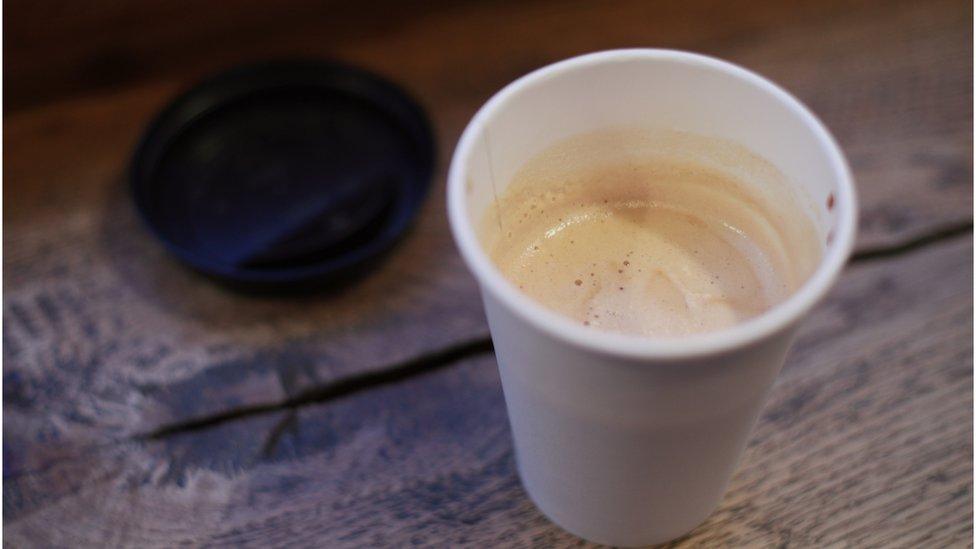
- Published26 February 2018
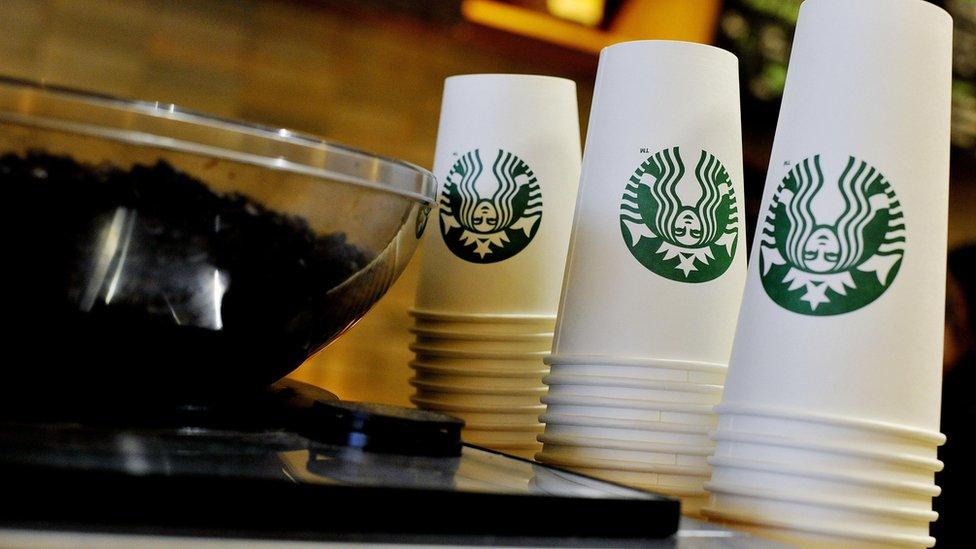
- Published5 January 2018
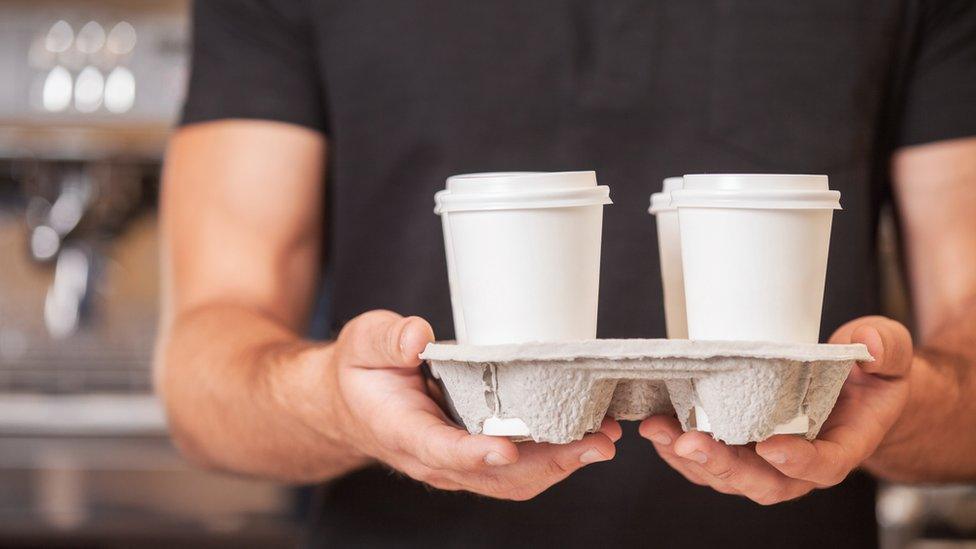
- Published5 January 2018

- Published6 December 2017
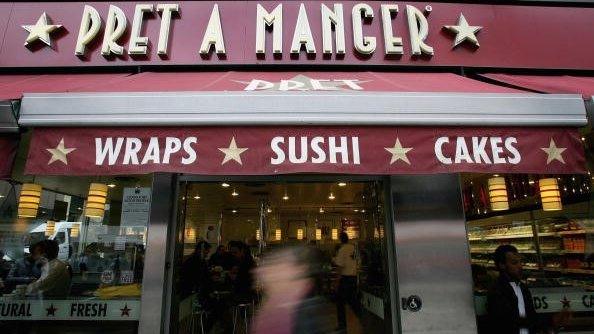
- Published11 October 2017
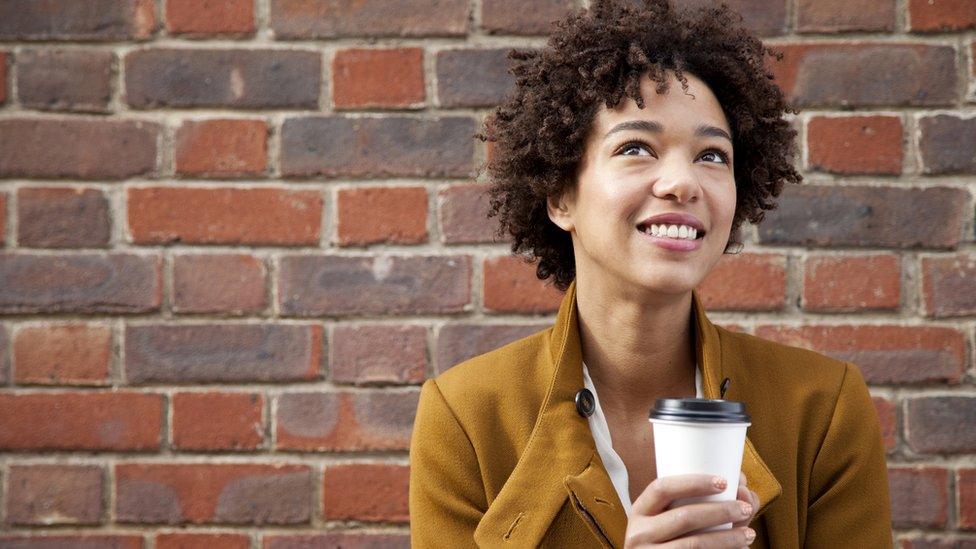
- Published27 July 2016
